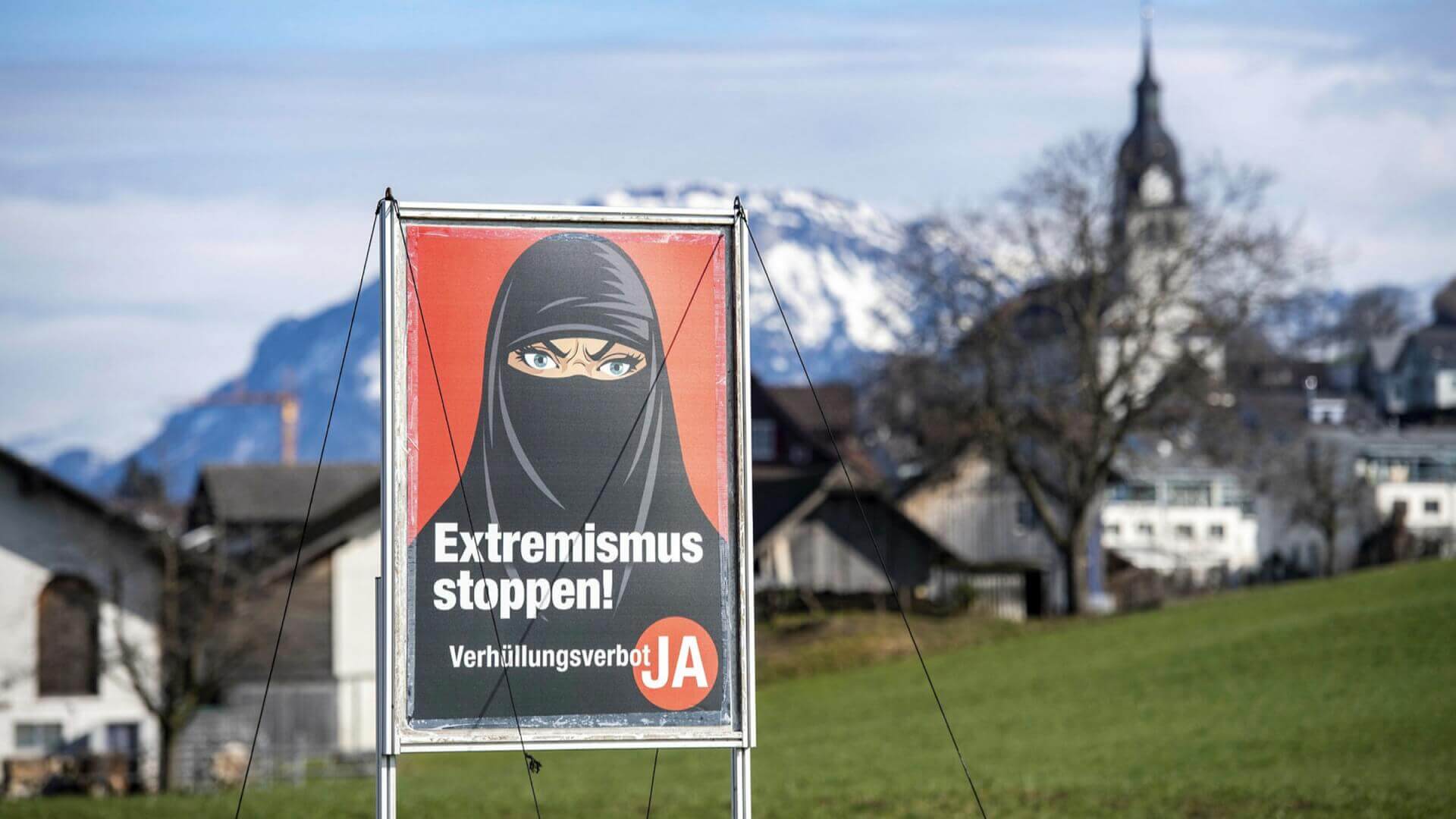Over the weekend, 51.2% of Swiss voters voted ‘yes’ in a referendum on whether or not to ban facial coverings in public spaces in Switzerland, thereby effectively prohibiting the Islamic veil or burqa in public areas, including shops and restaurants. However, such coverings will be allowed in places of worship and for “native customs” like carnivals. Further, coverings worn for health and safety concerns, such as face masks for the COVID-19 pandemic, will be exempted from the ban.
According to the direct democracy system in place in Switzerland, any petition with over 100,000 signatures must face the scrutiny of the public through a referendum. The current vote is a consequence of a proposal by the right-wing Swiss People’s Party. This group also previously spearheaded the referendum on minarets in 2009, which it alleged was a sign of Islamic radicalisation.
The referendum was opposed by the country’s Parliament and the executive council, which forms the country’s federal government. Instead of banning facial veils, which they said represented a “fringe phenomenon”, they suggested mandating individuals to lift their facial coverings to confirm their identity to officials for security purposes. Moreover, the Swiss government has reiterated that the state cannot determine what women choose to wear.
Moreover, the country’s Muslim community also opposed the ban. According to Ines Al Shikh, a member of the Les Foulards Violets, an Islamic feminism group in Switzerland, “This is clearly an attack against the Muslim community in Switzerland. What is aimed here is to stigmatise and marginalise Muslims even more.” Further, a statement released by the Swiss Federation of Islamic Umbrella Organisations said, “This symbolic policy is directed against female and male Muslims … But it also damages the whole of Switzerland, which has undermined its own values by accepting the initiative.” Moreover, an alliance of Swiss hoteliers and tourism professionals also spoke out against the ban, arguing that it would impact the number of visitors from Arab countries.
International rights group Amnesty International has also condemned the result of the referendum, saying, “After the ban on minarets, a majority of Swiss voters has once again backed an initiative that discriminates against a single religious community and needlessly stirs up fears and division … The veiling ban is not a measure for women’s liberation, but a dangerous symbolic policy that violates freedom of expression and religion.”
However, supporters of the ban said that it was not targeting the Muslim community in the country, but also aimed to target violent demonstrators and other anti-social elements in the community that act behind masks. However, the posters of the campaign ad showed women wearing the Islamic veil and read “Stop extremism! Yes to the veil ban.” A video published by the supporters of the petition on the Swiss government’s website further argued that “religious veils like the burqa or the niqab are a symbol of the oppression of women and aren’t suitable to our society.”
In Switzerland, merely 5% of the population are members of the Muslim community, with most citizens having roots in Turkey, Bosnia, and Kosovo. Further, a study by the University of Lucerne estimated that merely 21 to 37 women in the country wear a niqab. Moreover, it concluded that there was no evidence of women in Switzerland being forced to wear the burqa.
Switzerland’s ban follows several other European countries, which have similar restrictions on face coverings in public. France, for example, imposed a complete ban on a full-face veil in 2011. Similar complete and partial bans on face coverings can also be found in Austria, Belgium, Bulgaria, Denmark, and the Netherlands.
Swiss Citizens Vote in Favour of Burqa Ban in Referendum
During a referendum conducted on Sunday, Switzerland voted in favour of banning full facial coverings, like the Burqa, in public places. Similar bans are in place in France and Belgium, amongst others
March 8, 2021

SOURCE: EPA-EFE
